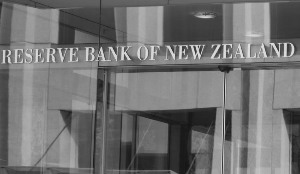Caution to dictate OCR call this week
Uncertainty is bubbling beneath the surface of monetary policy but, despite this, economists expect the Reserve Bank to leave the OCR on hold at 1.75% this week.
Monday, September 25th 2017, 6:00AM
by Miriam Bell

Without exception, economists who responded to the regular GoodReturns.co.nz survey indicated they would be shocked if the Reserve Bank makes any change to the OCR – or its monetary policy stance.
ANZ chief economist Cameron Bagrie said they suspect next week’s announcement will be something of a “non-event”.
Not only will the OCR be left at 1.75%, but the Reserve Bank will reiterate a cautious, watchful and neutral stance, he said.
“While there will be some obvious tweaks in wording regarding the NZD and recent data outturns, we expect the overall tone to be largely indistinguishable from the Reserve Bank’s August Statement.”
In his view, mixed economic signals continue to justify the Reserve Bank’s watchful stance.
Westpac chief economist Dominick Stephens said that, fortunately, the economic situation is such that the Reserve Bank can afford to sit on its hands and not make any changes.
“But beneath this placid surface, there is a lot going on with monetary policy.
“The weak housing market and stalled construction sector are important developments… Both are likely to be the product of tightening financial conditions.”
In time, the Reserve Bank will have to reduce its GDP and house price forecasts, which will affect the stance of monetary policy and leave it hinging on what happens to the exchange rate, he said.
“If the TWI continues to trend downwards, as we expect, then the Reserve Bank would continue to forecast no change in the OCR. But if the exchange rate failed to fall, they might have to adopt an easing bias.”
Kiwibank chief economist Zoe Wallis agreed there is a high level of uncertainty facing the New Zealand economy at present.
That means there are some key factors that will determine growth and interest rates in coming years, she said.
They include the resilience of the housing market, government policies post-election and the ability to ease capacity constraints in the construction and tourism industry.
Despite this uncertainty, Kiwibank expects a period of interest rates stability going forward, which includes a hold on the OCR next week, she said.
Most of the economists surveyed thought the OCR has troughed in this cycle, although Bagrie said that a case for a cut at some stage can be argued but the hurdle for it would have to be high.
Going forward, the economists were nearly all picking that the Reserve Bank’s next move will be to hike the OCR in the second part of 2018, probably towards the end of the year.
However, ASB chief economist Nick Tuffley said they now think a hike will not come till early 2019.
ASB is not alone in pushing out its hike expectations.
Infometrics economist Mieke Welvaert said softer inflation along with the slowing housing market gives the Reserve Bank little reason to raise the OCR any time soon.
“We are now expecting the Reserve Bank to lift the OCR later in the second half of next year, as opposed to our previous pick of May 2017.”
| « ASB keeps ownership of Sovereign Home Loans | Vincent Capital adds a South Island BDM » |
Special Offers
Comments from our readers
No comments yet
Sign In to add your comment
| Printable version | Email to a friend |



